At last year’s Grade 8 Graduation, I referred to them as the “Coronavirus Class of 2020,” assuming that a year later we would return to the regularly phrased “Class of 2021”. Like every other of my assumptions during the pandemic, that one, too, was incorrect, and here we are at the graduation for the Coronavirus Class of 2021. This time I hope, but don’t assume, a return to normalcy next year. But next year is next year, and tonight we focus our attention on this remarkable group of graduates and the extraordinary journey – particularly of late – they have taken to reach this milestone.
As the year, with its months-long pivot to distance learning, has been winding down, I find myself reflecting more and more on Theodore Roosevelt’s “Man in the Arena” speech, which has been re-popularized in recent years through the work of Brené Brown. The big idea is that what really counts in life is not outcomes, but the courage to get “in the arena”. That what matters is not whether you are successful, but that you are willing to engage, to get your hands dirty, to commit to big ideas and bigger ideals, that you get back up when you fall and – ultimately – that you strive to live a life of meaning. The shorthand way of describing this is to say that what really matters is showing up. And if there was ever a class who has shown up over the last year and a half of pandemic learning, it is this Class of 2021.
But let me first pivot back towards two other critical partners who have shown up and shown out…
Parenting Matters
Last year, I stood in awe at the perseverance of parents with everything that they were asked to do without time, training or support to facilitate at-home learning. Well, not only are all of those things still true and then some a year later, but what I have come to realize even more broadly is how much parents and parenting matters. And I don’t mean from a COVID-specific perspective, although that is obviously true. And I don’t mean from a generic school-home partnership lens, although that is absolutely critical. No, even as a parent myself, I don’t think I realized just how important parents and parenting truly are to supporting children’s willingness to get in the arena.
The path of small Jewish day schools is not always an easy one to tread. Parents find their way into Jewish day schools for all kinds of highly personal reasons – personalized attention, family atmosphere, a deep commitment to Jewish Studies, or even just going where everyone else happened to be going that year. We also know that parents find their way out of Jewish day schools for all kinds of highly personal reasons as well. We are not here to stand in judgement of those who opted out; we are here to stand in praise of those who show up and opt in – year after year. Jewish day school comes at a high price, and that price is not just financial. There are many in this virtual room who have sacrificed luxuries and necessities to reach this day. All in this room have sacrificed their most precious gift – time – in service of their children’s academic and Jewish journeys. Years like these two sharpen both points. COVID-19 has not only strained families’ pocketbooks, but even with extraordinarily self-directed Grade 8 students, the transition to distance learning has strained families’ living spaces, devices, time, and patience (not to mention wifi!).
We believe that a night like tonight validates those choices and those sacrifices, and proves the power of parenting.
The Vulnerability of Teachers
Teachers make a school and we never saw greater proof of that than during these last two years. In her book Daring Greatly, Brené Brown identifies “vulnerability” as one of the superpowers that allows folk to show up. Allowing yourself to be vulnerable in front of others is a strength, not a weakness, and I actually believe it goes a long way towards explaining what our teachers and our school has been able to accomplish. When you are forced to fly the plane while you are building it, when you have to teach from home with your life on display in the background, when you have to use new skills and new platforms without having had adequate time to learn, let alone practice, when you are willing to publicly acknowledge to your students what you don’t know, when you show up as you are and not, perhaps, as you would like to be – could there be more powerful role modeling for our children than this? Vulnerability is what lets our teachers know our children like no other school can. Vulnerability is what gives permission to our students to be who they most authentically are without fear of judgement. Vulnerability is why graduation is not only an opportunity to acknowledge the Grade 8 Teachers, but a moment to celebrate all the teachers whose collaborations and contributions over time come together to create a class.
We believe that a night like tonight rewards those relationships, lauds that learning, commemorates community and validates the value of vulnerability.
The Courage of Graduates
It takes courage to get into the arena for any of us under normal circumstances. With all our complicated personalities and unique experiences, just showing up – getting into the arena – is a genuine act of courage. But when showing up means sometimes being at home, or sometimes being at school, or trying to create new or maintain old relationships from inside a Google Meet, dealing with unusual safety protocols and sacrificing much-anticipated capstone experiences – what I have seen firsthand from you each – and know secondhand from all your teachers – is that you bring your courage to your individual work, your group projects and your class commitments. You bring it to your academic challenges, and you bring it to your extracurricular opportunities. You bring it to your varying Jewish commitments, and you bring it to your many expressions of community service and social justice.
And sure, some of that would have been true in the most normal of years. These last two years, however, were of course far from normal. Like so many others, this year’s Grade 8 has had to sacrifice moments and memories as planned events became unplanned experiments. We have, of course, done our best to be creative and go virtual in order to provide with you as many experiences as we could, but we know they aren’t the same. It is here, too, where you have shown your courage and your character. You have stuck together, you’ve made your lemonade from lemons, and you have come through the other side with your bonds as tight as ever.
We believe that a night like tonight confirms your character and projects the promise of your potential. You have come into the arena each and every day and there is no greater testament to your courage than that.
Our OJCS “North Stars” Prayer
Our prayer for you as you graduate and head out into the world is that you come to experience and embody our school’s North Stars; that you continue to point in their direction as you continue to grow and develop into high school and beyond…
- “Have a floor, but not a ceiling” – be your best self. Have high expectations at a minimum and unlimited aspirations at a maximum. We hope you learned at OJCS to be comfortable in your own skin and to carry that confidence with you when you head out into the wider world.
- “Ruach” – be joyful. School – and life – is supposed to be fun, even when it may seem hard or have difficult moments, like a global pandemic. We hope you had many moments of joy at OJCS and that you have many more moments of joy in the years to come.
- “We own our own learning” – learning isn’t something that happens to you, it is something you choose. We hope you take the sense of ownership for your learning that we strive towards at OJCS into your next schools of choice and that you not merely be satisfied with gathering information, but that you take a growing sense of responsibility for what you learn and how you learn.
- “We are each responsible one to the other” – make the world a better place. Take what you’ve learned (Torah) and do great deeds (Mitzvot); do (these) great deeds and be inspired to learn more.
- “We learn better together” – we are stronger and more successful together than we can be alone. Judaism has always been communitarian in this way and what is old is new again as we live in a world where collaboration is not simply advantageous but required.
- “We are on our own inspiring Jewish journey” – keep choosing Jewish. One can argue that the next years of your Jewish lives are more important than the ones you are celebrating tonight. In your own ways – continue. Whether that is in formal Jewish learning, youth group, summer camps, Israel, synagogue attendance, social action – you are no more fully formed Jewishly at your Grade 8 graduation than you were at Bar or Bat Mitzvah. We pray that you build on this foundation and that you embrace the Jewish journey that continues after tonight.
In closing, know that you each are blessed more than you realize. But do not ever be content to merely count your blessings. Be someone who makes their blessings count.

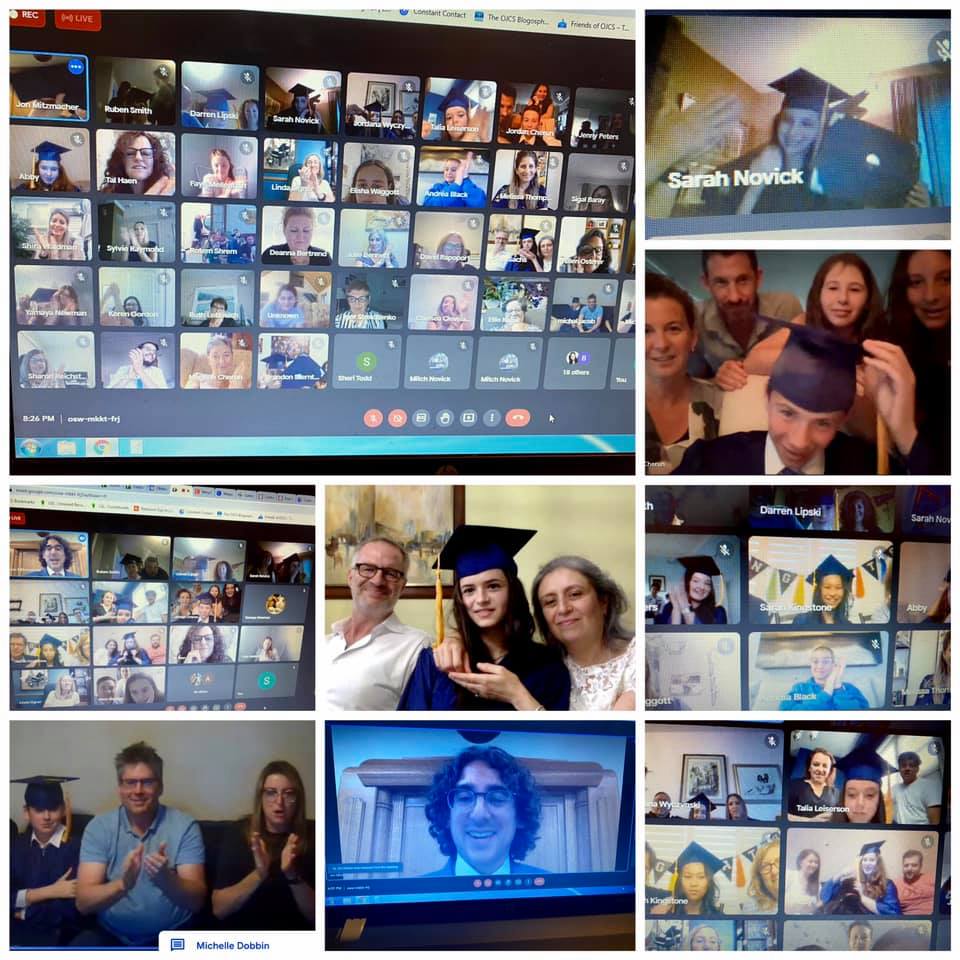


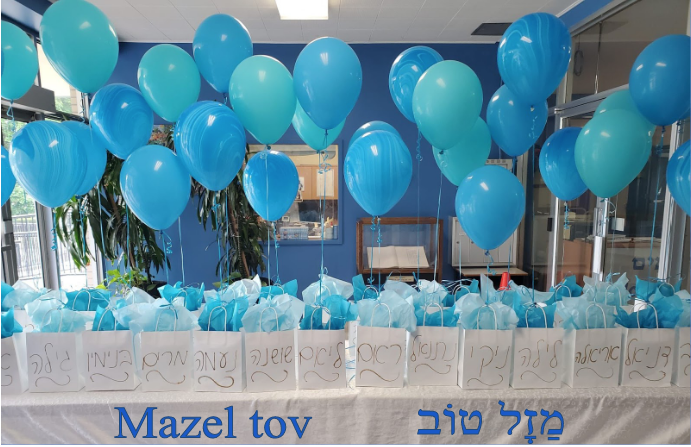




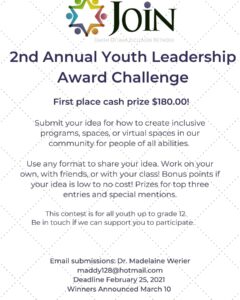
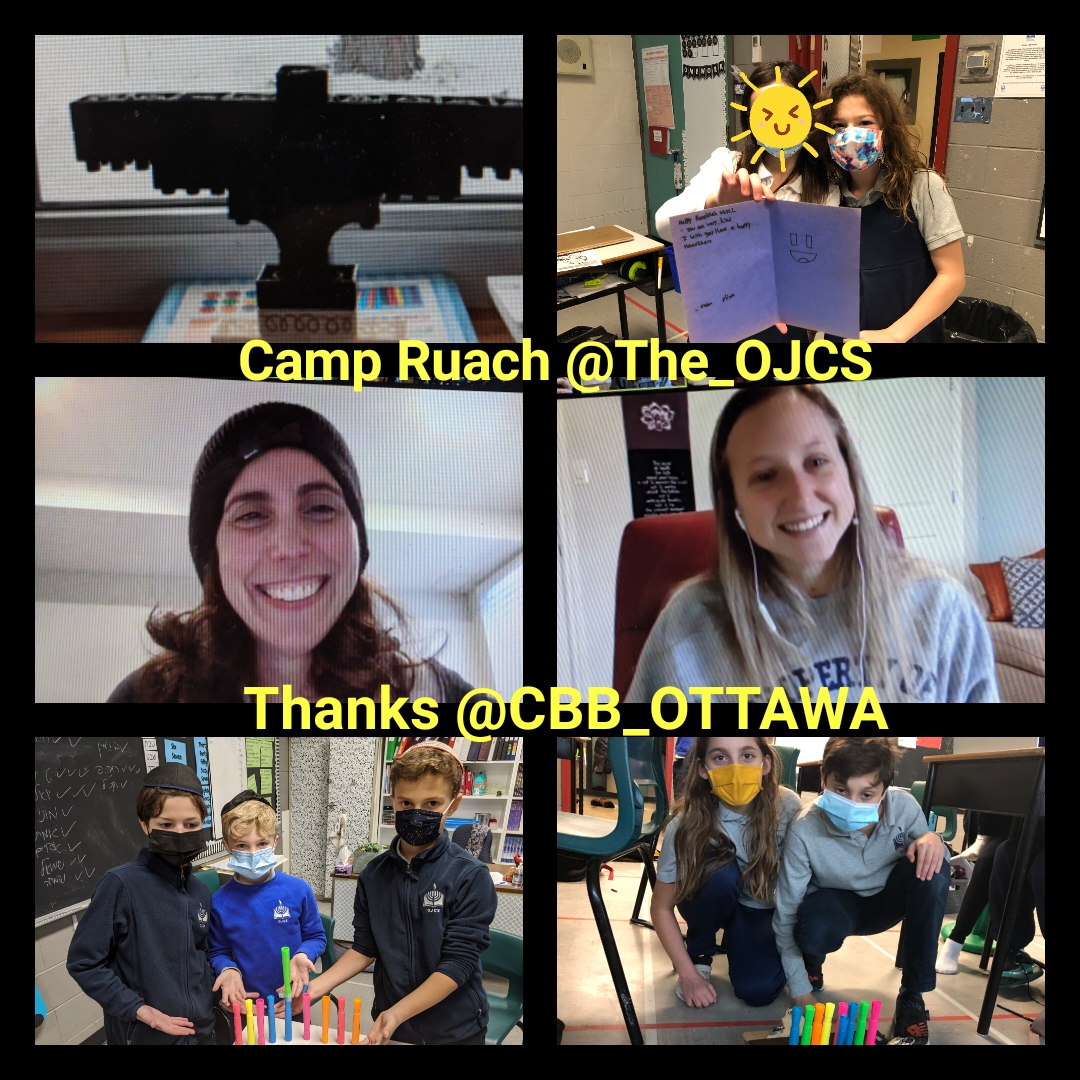




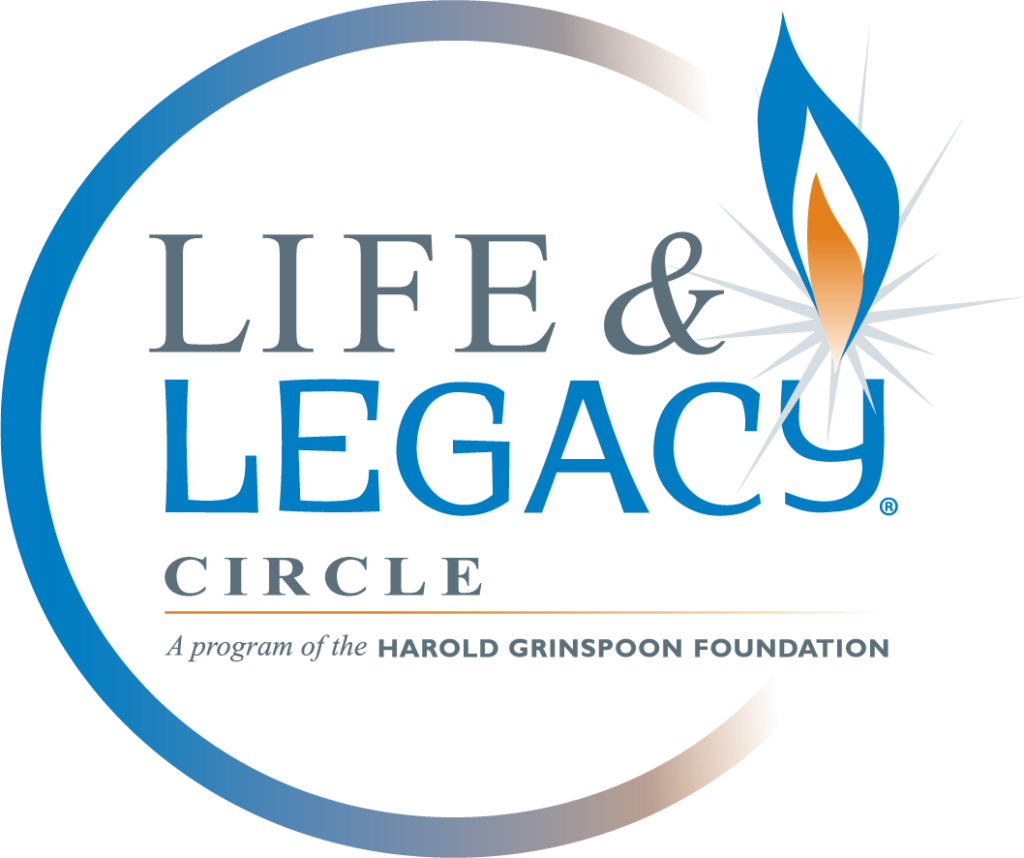

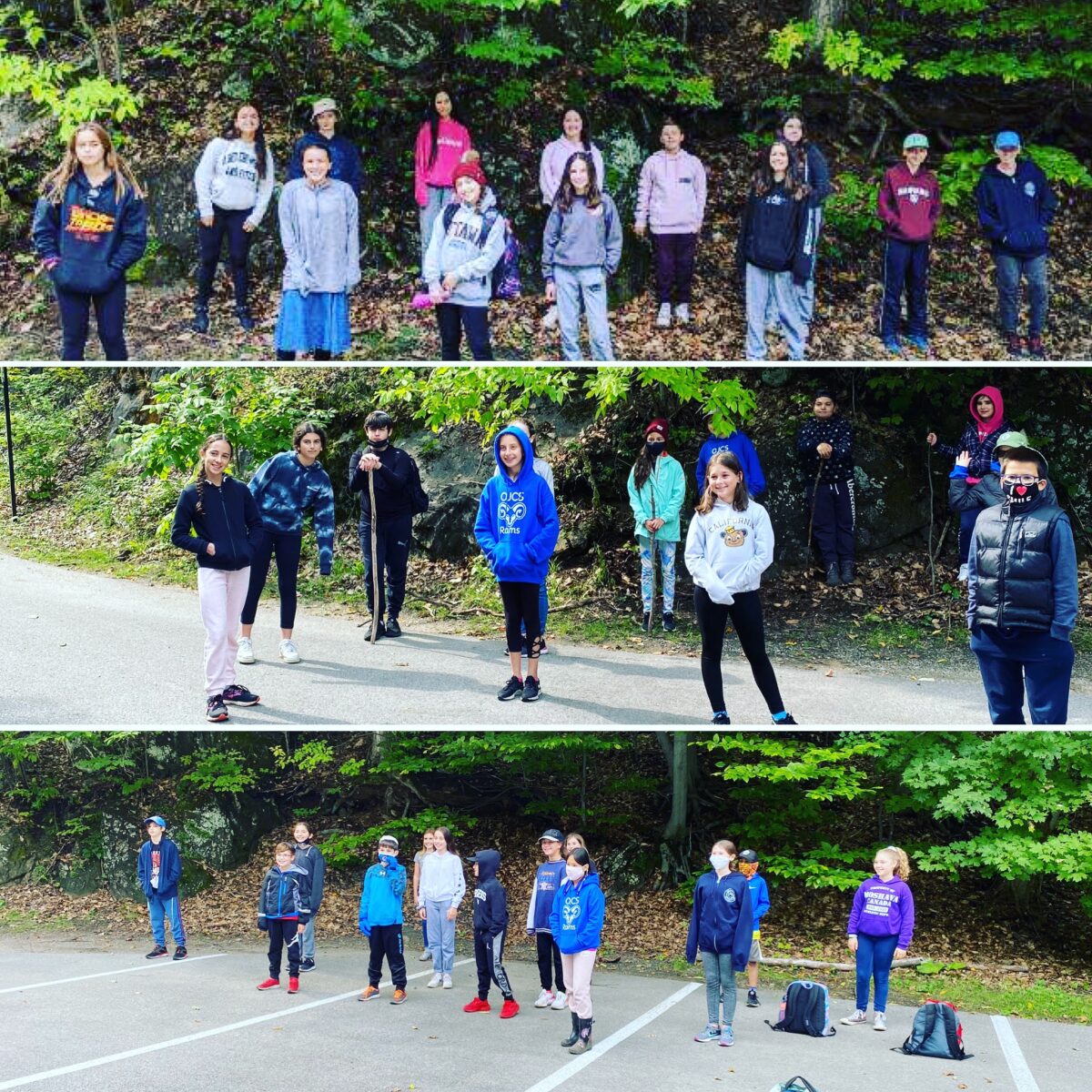
 that this is the year we’ve been waiting for. To all the teachers, staff, parents, students, donors, supporters, and friends in this special school- thank you for your enthusiasm and your hard work. Let’s make sure that 5781 is not only an amazing year, but a safe one at that.
that this is the year we’ve been waiting for. To all the teachers, staff, parents, students, donors, supporters, and friends in this special school- thank you for your enthusiasm and your hard work. Let’s make sure that 5781 is not only an amazing year, but a safe one at that.